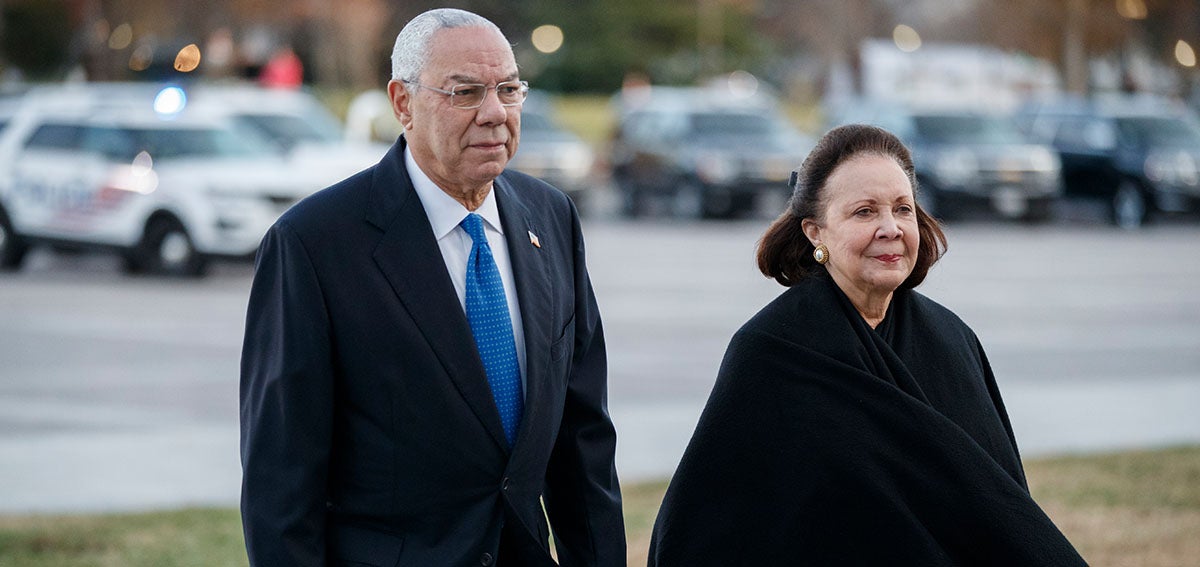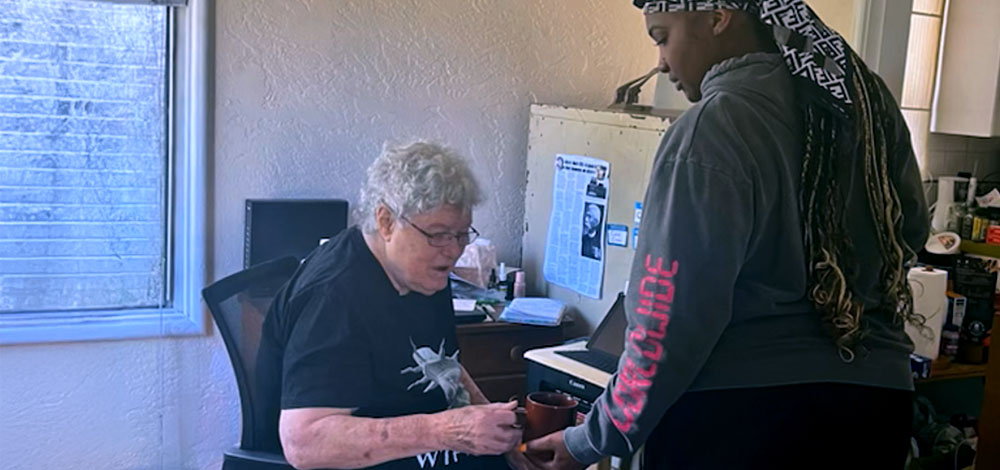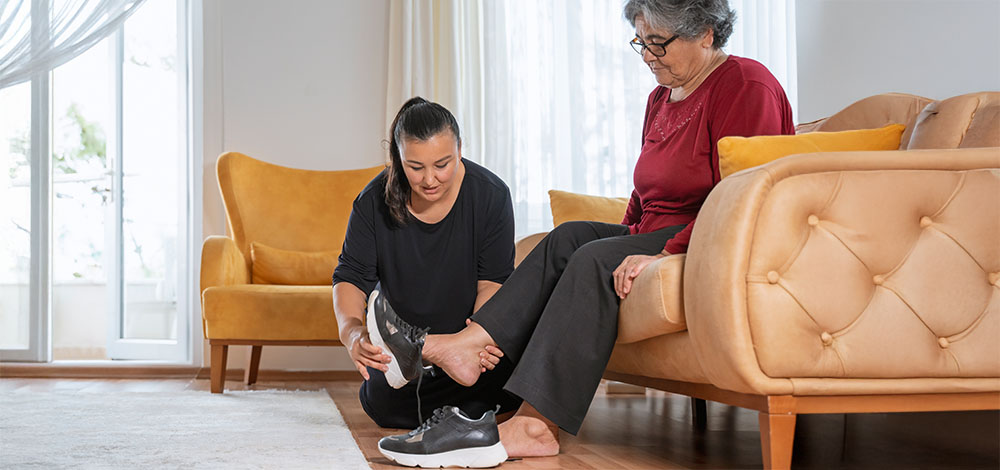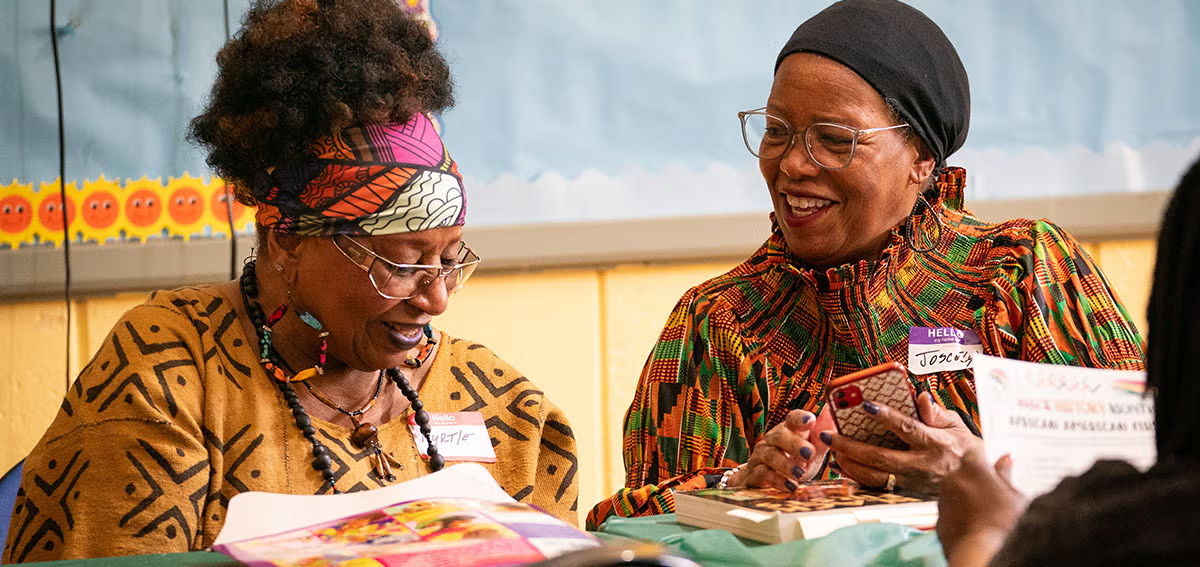
COVID-19 vaccination opponents last week seized on the death of former Secretary of State Colin Powell from complications of COVID-19 despite being fully vaccinated. Even though Powell, 84, was immunocompromised by a blood cancer, antivaccine voices in the media sowed doubts about the effectiveness of the shots.

COVID-19 vaccines are highly effective. Unvaccinated people are 11 times more likely to die of COVID-19 and 10 times more likely to be hospitalized with the disease.
Yet prominent vaccine opponent and “Fox and Friends” host Will Cain called Powell’s death a “very high-profile example that is going to require more truth . . . more truth from our government, from our health leaders as well. As we talk about this story on a day when state after state and institution after institution are pushing mandates for vaccination.”
Multiple myeloma had rendered Powell susceptible to contracting the virus and becoming seriously ill from COVID-19. The cancer weakened his immune system’s ability to mount a defense against the virus and diminished his response to the vaccine.
One in 26,000
His age also put him at higher risk for a breakthrough infection. Powell’s wife, Alma, who is 83, also suffered a breakthrough infection, but she had only mild symptoms of the illness.
Death from the virus following full vaccination remains uncommon. According to data from the US Centers for Disease Control and Prevention (CDC), 1 in 26,000 fully vaccinated people have died from COVID-19. Dying from a breakthrough infection is possible, especially for elderly people, but it’s rare.
CDC data also show that more than 700,000 unvaccinated people in the US have died from COVID-19. “Nothing is 100% effective,” said Paul Offit, MD, director of the Vaccine Education Center at Children’s Hospital of Philadelphia, to New York Times reporter Emily Anthes. “The point of getting a vaccine is that you want to know that the benefits clearly and definitively outweigh the risks. And we know that for this vaccine.”
Powell’s death illustrated the “need to tamp down on coronavirus cases more broadly to help protect those most at risk,” Phillip Bump wrote in the Washington Post.
2.7% of American Adults Are Immunocompromised
As of July 2021, nearly half of the people hospitalized with breakthrough COVID-19 infections were immunocompromised, Jonathan Golob, MD, PhD, assistant professor of infectious disease at the University of Michigan, wrote recently for the news site The Conversation.
Immunocompromised people make up about 2.7% of the adult population in the US, reported Kathleen Dooling, MD, MPH, member of the CDC Advisory Committee on Immunization Practices, in an August presentation. Based on the 2020 census, that is seven million people.
Marc Harrison, MD, the CEO of Intermountain Healthcare in Utah, a nonprofit health system in Utah, Idaho, and Nevada, is fighting multiple myeloma, and he has less than 10% of some types of immune cells needed for an adequate immune system, he told Salt Lake City Tribune reporter Erin Alberty.
“I guarantee you that everybody knows somebody out there like General Powell or like me,” Harrison said. “The way herd immunity works is, we are relying on [others] to take good care of themselves and get vaccinated.”
Insufficient Reaction
Blood cancers are among numerous diseases that suppress the body’s immune response and weaken the vaccine’s effectiveness. People with autoimmune diseases, untreated HIV infections, cancer, and some forms of kidney disease are more susceptible to breakthrough infections, Golob noted.
A July study of 103 multiple myeloma patients showed more than half of them produced an insufficient immune response to COVID-19 vaccines.
Disease treatments may also diminish immune response and vaccine effectiveness. Millions of Americans take drugs that “specifically target certain parts of the immune system, for example, to prevent transplant rejection, or to prevent your immune system from attacking yourself in autoimmune diseases,” explained Dorry Segev, MD, PhD, a Johns Hopkins transplant surgeon.
“The common thread,” Golob wrote, “is that the body’s defenses against infection are impaired.”
Immunocompromised people remain sick and infectious for longer periods of time and are more likely to transmit the coronavirus to others in their household, Dooling reported in her CDC presentation.
Another Risk Factor: Advanced Age
Serious illness following a breakthrough infection is most common among older adults, according to Rachel Nania of AARP. “When a vaccinated person does fall seriously ill with COVID-19 — it’s happened to about 0.008% of the 176 million fully vaccinated Americans — it’s likely to be an older adult,” Nania wrote.
A recent study in The Lancet found that the median age of people who were vaccinated yet hospitalized with COVID-19 at the Yale New Haven Health System was 80.5 years, Nania noted.
The chronic illnesses that make people more vulnerable to COVID-19 affect about 80% of older Americans. Older adults generally have weaker immune systems, Mark Slifka, PhD, an expert in vaccine-induced immune responses at Oregon Health & Science University, told Nania.
The effectiveness of the vaccine wanes more rapidly in older adults than younger people. That leaves them less resistant to variants of COVID-19 such as delta, which “is just different enough from the virus that the vaccine was developed for that you also need to have super-extra-high amounts of antibodies to fight it,” Jill Foster, MD, pediatric infectious disease physician at the University of Minnesota Medical School, told Nania.
Community Response Is Vital
Vaccinations are most effective when they are given to everyone, not just the individuals who seek them out, said physician and journalist James Hamblin.
“There is probably no amount of vaccine that can guarantee an 84-year-old with blood cancer is absolutely protected from COVID-19 — or from anything else,” Hamblin wrote in the Washington Post. “When people are old and sick, even a mild illness can push them over the edge into respiratory or cardiac failure. The goal of vaccination is to drive a virus out of a population. This means everyone getting their first and second doses so that everyone is functionally protected.”
Powell’s death “comes at a time when more than 80,000 people a day are still contracting the virus and more than 1,500 people are dying from it — about as many people as were dying in early April 2020,” Bump wrote. “Had Powell been protected both by the vaccine and by low rates of infection in his community, he might still be alive.”
Authors & Contributors

Heather Tirado Gilligan
Heather Tirado Gilligan is a journalist who has written for publications including Slate, The Nation, CNN, and the Washington Post. Previously, she was executive editor of the California Health Report, a news nonprofit covering disparities in health and access to health care. Heather received a master’s degree in journalism from UC Berkeley and a PhD in English from Rutgers University, where she studied race in American culture.




